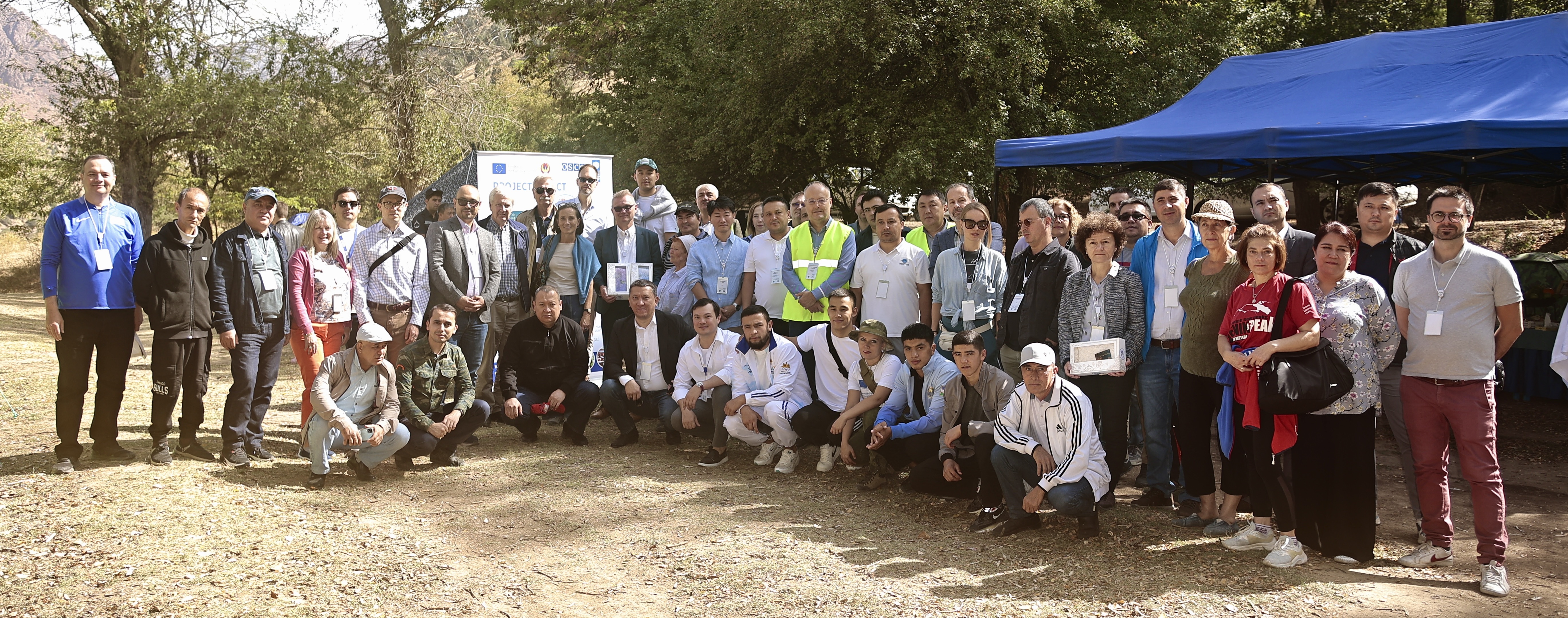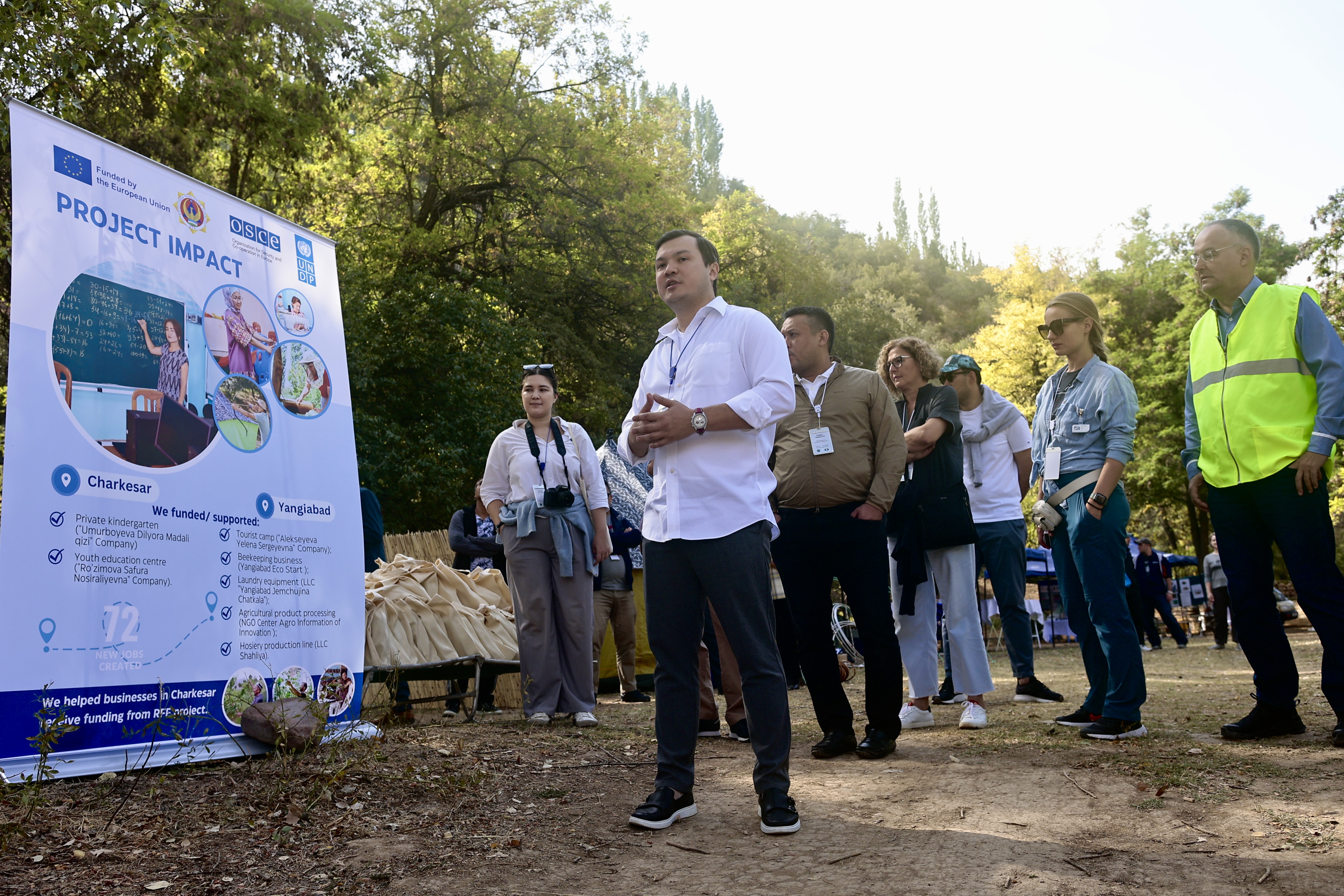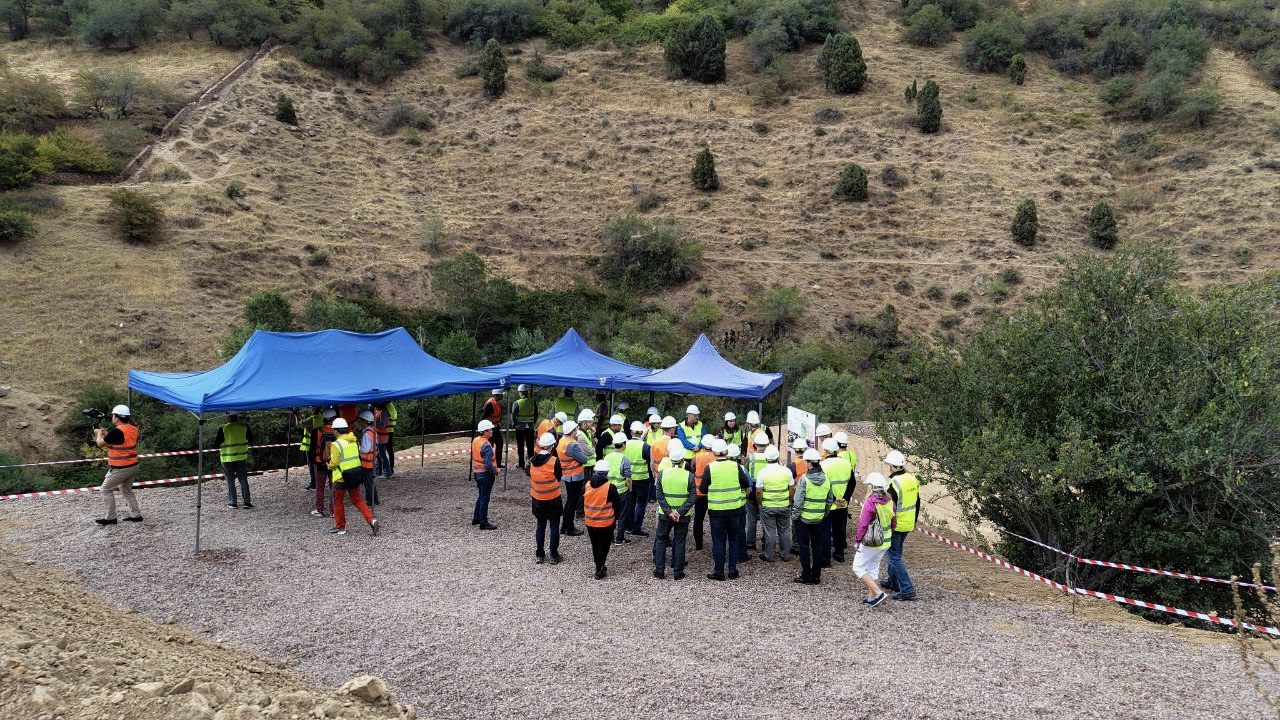Rehabilitation of Yangiabad: How the lives of local residents are improving
September 11, 2023

On September 8-9, 2023, a delegation of Ambassadors of the EU countries and the Delegation of the European Union in Uzbekistan, and representatives of the OSCE, UNDP, UNDP Istanbul Regional Hub, the EBRD, the Ministry of Ecology, and the Ministry of Emergency Situations visited Yangiabad to observe the results of projects aimed at enhancing the environmental situation and living conditions of residents in the uranium legacy territory.
Yangiabad is a town in Uzbekistan where uranium mining was conducted for 40 years. The mining operations concluded in the 1980s, but waste rock piles still exist in the vicinity of the town, necessitating environmental rehabilitation. Rough estimates suggest that approximately 1 billion tons of radioactive ore mining and processing waste is stored in tailings across the Central Asian region. These legacy sites pose a significant threat to both the environment and human health.

During the visit, the delegation reviewed the outcomes of the EU-funded UNDP and OSCE project titled "Stakeholder Engagement for Uranium Legacy Remediation in Central Asia: Phase II." As part of this project, the OSCE has focused on raising environmental awareness, highlighting the hazards associated with uranium legacy sites, and supporting communication with local communities during the remediation efforts. The UNDP project component has contributed to the socio-economic development of these areas by providing small grants to local individuals for establishing and expanding businesses.
The delegation interacted with local community activists and learned about the trekking camp activities, “Yangiobod Eko Start” beekeeping products, and textile products produced by Shahlia LLC. These business projects received funding and co-financing, along with five others in Yangiabad and Charkesar, resulting in the creation of 72 jobs.

In addition to Elena, over 100 individuals in Charkesar and Yangiabad have gained knowledge about initiating and managing businesses, as well as recognizing opportunities for green entrepreneurship in remote areas.
The project initiatives have also contributed to improving living conditions for the people of Yangiabad and Charkesar. The installation of seven transformer stations has provided power to 450 households in Yangiabad and 550 households in Charkesar. The project also involved the installation of 120 new radiation warning signs to alert the local population to potential risk areas.
Furthermore, the project procured dosimetry equipment and transferred it to the Ministry of Emergency Situations to facilitate radiation measurements for the local population and ensure safe habitation near uranium legacy sites. Residents of these sites can request a dosimeter and conduct independent radiation exposure measurements.

 Locations
Locations








